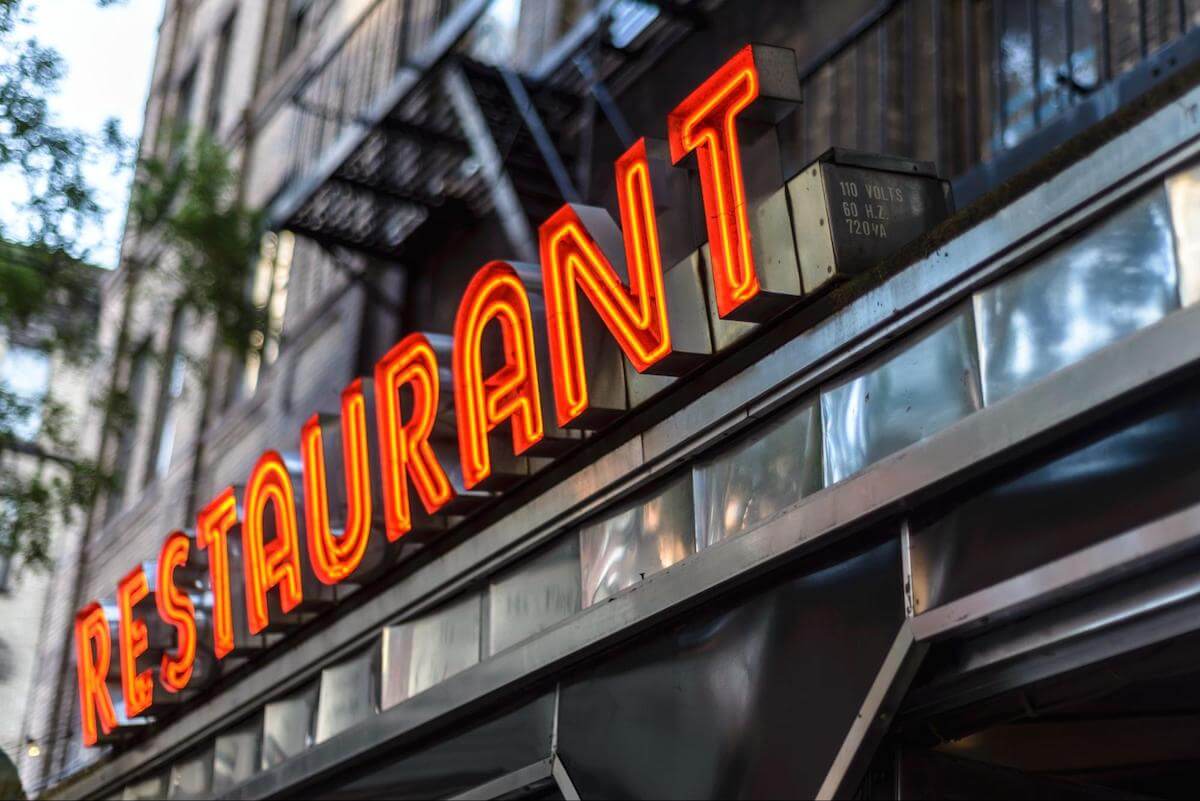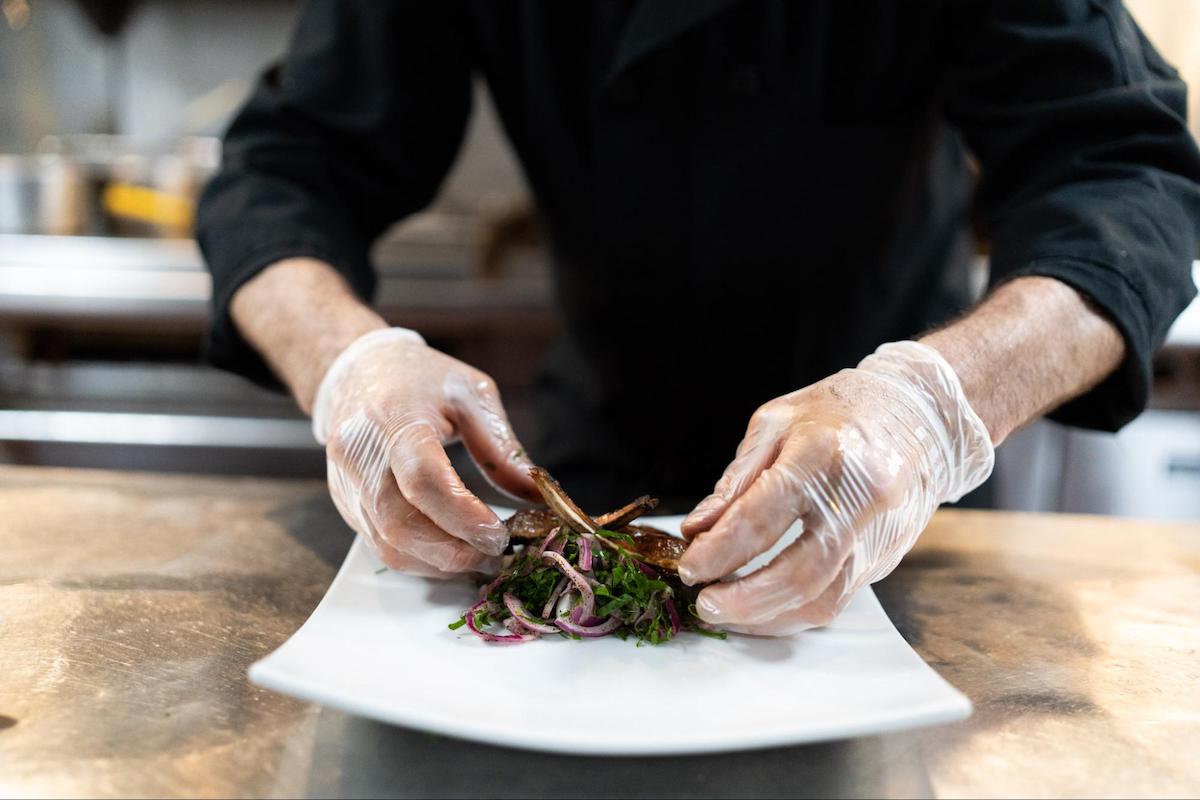12 restaurant permits and licenses you need before a grand opening
Skip the article and turn takeaways into action by scheduling a call with our team.
For many, opening a new restaurant is a lifelong dream. Plenty of entrepreneurs and foodies alike have imagined what their ideal restaurant would look like, what food they’d love to serve, who they’d want their customers to be, and more. However, very few spend time fantasizing about the restaurant permits and licenses required to start such a venture.
There’s no way around it: If you want your food establishment to be legal and remain open for any length of time, you’ll need to get your paperwork game down. Small business owners usually end up becoming experts on permits and licenses of all kinds, and the restaurant industry is certainly no different.
Of course, this is just general advice and not legal advice—we highly recommend getting in touch with a local lawyer who’s fully aware of the restaurant license laws in your specific location to make sure all your bases are covered.
1. Business license

A business license is one of the first things a new business needs to get, and one of the most important licenses you’ll have overall. It’s essential to running your restaurant as a legal entity, and gives you the authority to conduct business in your jurisdiction. Obtaining a business license will vary by your location, including city, county, and state. It will also differ depending on the type of business you operate. You can visit your city or county’s license center and register for a state-level business license.
If you need advice on business licenses and the application process in your area, your local Chamber of Commerce is a good place to start. Note that restaurants are locally regulated, so business licenses can vary widely in price depending on location. That license fee should be worked into your business plan, since no restaurant can function without a business license.
2. Certificate of occupancy
You’ll need to obtain a certificate of occupancy to ensure your building is safe and meets all local requirements. This certificate is issued by your nearest building or zoning department after your building’s final inspection, which confirms that your building has been properly constructed and is well maintained. Because this is locally regulated, the process for obtaining a certificate of occupancy will vary by jurisdiction, often at the county level.
3. Building health permit
A building health permit indicates that your building is, essentially, clean enough to safely serve food. Generally, this means no rot, rat’s nests, mold, or other potential hazards. Building health permits are often required for new buildings, and some counties require them for older buildings as well. You’ll want to check with your local health department and official requirements to see what’s necessary in your area.
4. Sign permit

If you plan to display a sign outside your restaurant, you’ll need to obtain a sign permit. Regulations concerning signage size, location, and lighting vary by city or county. If you’re renting, you’ll also likely need written approval from your landlord.
A sign permit cost will vary depending on your location and the type of sign you intend to use. You’ll want to provide a scale drawing of the sign before having it created.
5. Employer Identification Number (EIN)
Ah, taxes. Everyone’s favorite, inescapable pastime. As an employer, you’ll be required to obtain an Employer Identification Number (EIN) before hiring employees. An EIN is essential to properly file taxes and will work as your tax ID. Check out the IRS website to get information on the process for obtaining an EIN. Starting as early as possible is a good idea, because the IRS is often backlogged with EIN requests.
If you’re new to restaurant taxes, check out our article on tax deductions for restaurant owners.
6. Sales tax license
A sales tax license, alternately known as a seller’s permit or sales tax permit, is required to collect sales tax from customers during purchases. This license demonstrates to the state that your business is responsible for collecting sales tax and forwarding it to the government. Each state has its own process for obtaining a sales tax license, and sales taxes vary by state. Check your local government website for detailed information about obtaining or renewing this license.
7. Food service license
If you want to serve food legally, you’ll need a food service license. A food service license is another non-negotiable certificate that indicates you meet local regulations concerning food preparation, food storage, and a number of other public health and safety regulations. Basically, it’s to indicate that you’re not an amateur who puts raw meat next to cooked food.
Your county health department is usually the place to start here. They’ll inspect your establishment to make sure you’re following food safety regulations. Fees will vary based on location, type of establishment, and the number of employees you have. In some cases, you’ll also need to complete a food safety course or earn a food handler’s permit. More on that next.
8. Food handler’s permit

Requirements concerning food handler’s permits vary by state, and we highly recommend getting acquainted with the specifics in your area. Some states require managers to undergo a food safety course, others require all servers to have a food handler’s permit, while some (like Connecticut) don’t require any food handling license for employees. Employee health permits generally are not difficult to come by in the states that require them.
9. Liquor license
If you plan to sell alcoholic beverages, you’ll need a liquor license. Liquor laws vary widely in the U.S., so you’ll want to know your local liquor license requirements thoroughly. Luckily, we’ve written an article on how to get a liquor license, so be sure to check that out for full details on the wild world of wine licenses and alcohol certifications.
10. Live entertainment and music license
In some areas, you’ll need a license for live entertainment like live music. Essentially, this will indicate you’re following copyright laws and have the necessary permissions to host live performances. It also helps prevent lawsuits.
Believe it or not, the U.S. Copyright Act of 1976 deemed it illegal to play copyrighted music in your venue. This law can be exceptionally confusing, since you’d think that purchasing an online streaming service, for example, would be enough to cover you. But it may not, and recording industry agencies can sue for up to $700 per unlicensed song. So, in order to not get sued by recording industry associations, it’s wise to get a music license even for canned music. There are, however, some background music providers that offer business-specific music streaming services that can keep you out of any potential hot water.
11. Dumpster permit
You’re likely going to need a dumpster, and many areas require a dumpster placement permit. Again, this permit will depend on your location, the size and placement of the dumpster, and any local environmental health requirements. Waste management is no joke and needs to be properly maintained to ensure your building remains health compliant. Just as an example, California has a wide variety of dumpster-specific requirements, which makes you wonder just who hammered out all these details.
12. Food truck permit
A food truck permit differs from other permits in many ways. At the most basic level, a food truck permit ensures you comply with all food safety regulations in your area all while operating a mobile food vendor business. This requirement will differ by location, again, so be sure to check with your city and county permit boards to make sure you’re covered.
Dot your I’s and cross your T’s

Once you’ve got all your licenses squared away and your permits on point, you’ll get to pay attention to the finer (and often more interesting) details of running a restaurant—like running a perfect front-of-house service.
When done right, a solid restaurant shift looks as graceful as a ballet. And the right tools make smooth operating all the more likely. Imagine what seamless online reservations, check-ins, and waitlist management would look like. Then imagine pairing that with a fully customizable table management program that syncs with third-party delivery services and the best point of sale systems.
If that sounds more appealing than getting a dumpster permit (and we hope so) then you may be looking for Yelp Guest Manager. If you didn’t know you needed it in your life, we’re here to help. Reach out to us for a free demo and we’ll show you all the ropes. We promise it’s way less tedious and much more fun than permit paperwork.